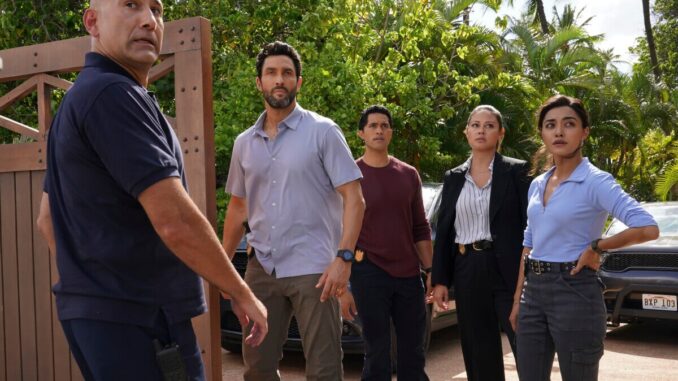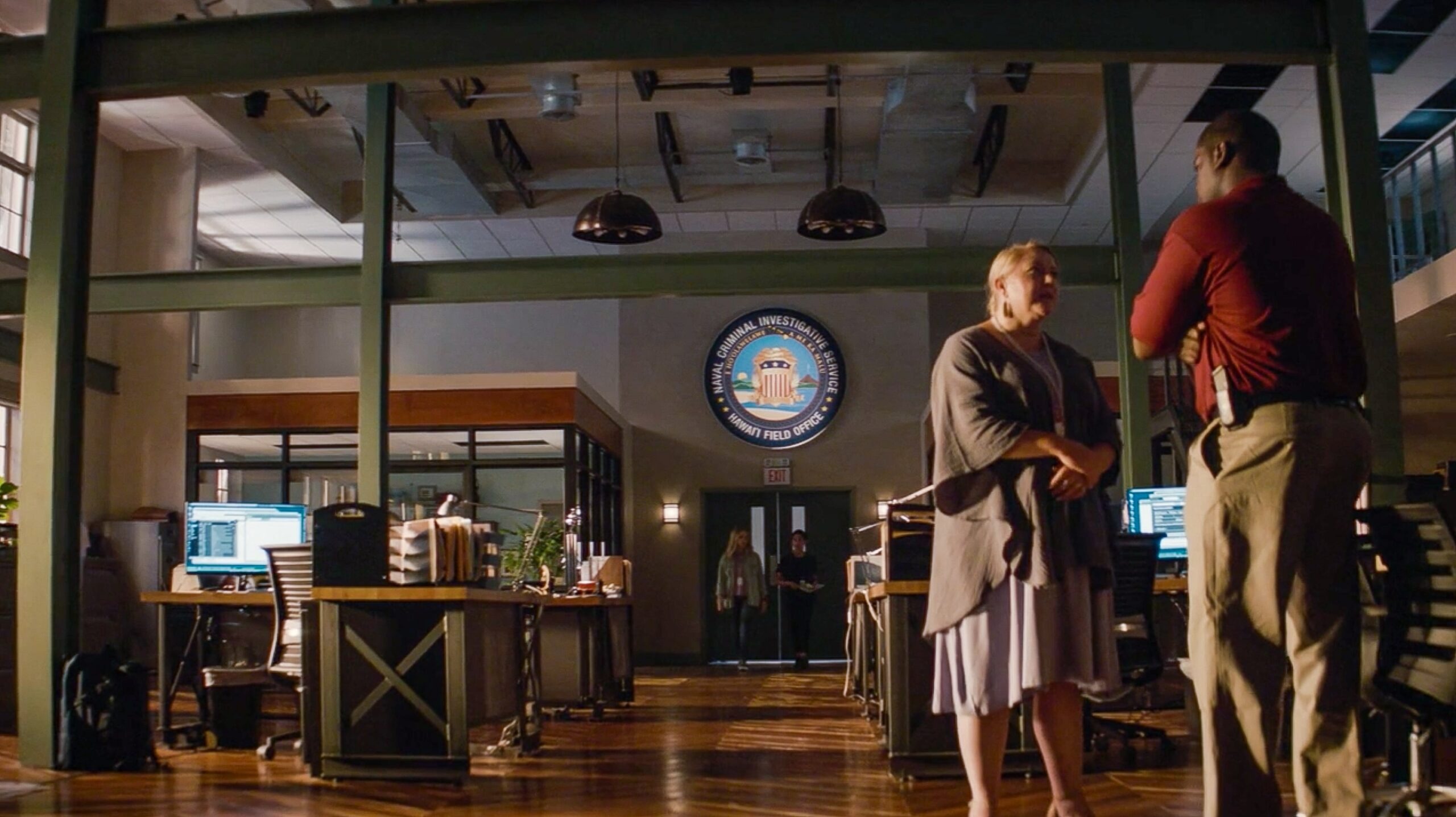
I understand that filming on the island is expensive, but at the very least, CBS is already guaranteed returns, considering NCIS: Hawai’i’s success. Reisenbach revealed that they looked at the numbers, which informed their decision. That said, viewership data revealed that NCIS: Hawai’i ranked as the 16th overall most-watched series during the 2023-2024 season — a big improvement from its previous year. Moreso, Its series finale ranked at number 11 in terms of the largest 7-day lift for primetime endings airing on the key broadcast networks. That’s a solid indication that it is trending upwards.
From an outsider’s perspective, I don’t think that CBS can chalk NCIS: Hawai’i’s cancelation up to cost-cutting while also devoting resources just to launch an untested show such as Einstein. Considering its growth, why clip its wings before it can even reach its full potential? Upon its cancelation, NCIS: Hawai’i became the shortest-running show in the famed police procedural franchise. Unless there was something else at play, it doesn’t seem like the network was in such a dire position that it had no choice but to unceremoniously end the Lachey-led project. From an outsider’s perspective, I don’t think that CBS can chalk NCIS: Hawai’i’s cancelation up to cost-cutting while also devoting resources just to launch an untested show such as Einstein.
When Business Meets Storytelling
Let’s be real—TV isn’t just about storytelling anymore. It’s about numbers, eyeballs, and cash flow. That’s why when CBS pulled the plug on NCIS: Hawai’i, fans were shocked—and so were media analysts. Why? Because from a business standpoint, keeping the show alive made way more sense than cutting it loose. Let’s break down exactly why canceling NCIS: Hawai’i may go down as a major misstep for CBS.
The Business Power Behind TV Franchises
The NCIS Brand Is a Multi-Billion Dollar Machine
NCIS isn’t just a show—it’s a brand. It’s a global phenomenon with a loyal fanbase that stretches from the U.S. to Europe to Asia. CBS didn’t just cancel a spinoff; they let go of a money-making extension of one of the most successful TV brands in history.
Why Hawai’i Was the Fresh Flavor the Franchise Needed
Set against the vibrant backdrop of Oahu, NCIS: Hawai’i brought something new to the table. It featured a strong female lead, a diverse cast, and a tone that mixed procedural drama with island charm. It wasn’t just more of the same—it was a refresh.
Let’s Talk Dollars—What CBS Lost
The Revenue Streams Were Flowing
From syndication rights and streaming deals to international licensing and merchandise, NCIS: Hawai’i was already starting to generate serious revenue. Pulling it early? That’s like leaving money on the table—hundreds of millions, potentially.
Missed Streaming Opportunities on Paramount+
With CBS and Paramount+ under the same corporate umbrella, original programming like NCIS: Hawai’i was perfect for boosting subscriptions. It brought in both legacy NCIS fans and newer, younger viewers. Canceling it risks losing that demo entirely.
Fan Engagement = Advertising Dollars
High Viewer Loyalty Means High ROI
Fanbases aren’t just emotional support—they’re financial assets. NCIS: Hawai’i fans were deeply engaged, active on social media, and ready to tune in weekly. That kind of loyalty equals high ratings and high ad revenue.
The Social Media Metrics Were 🔥
Check Twitter. Scroll through TikTok. You’ll find fan edits, reaction videos, and passionate discussions. That kind of organic engagement is priceless—and rare. Most networks pay big bucks for that kind of attention.
Diversity and Inclusion Drive Modern TV Success
Representation Sells—Globally
NCIS: Hawai’i was one of the most diverse shows on network TV. That’s not just socially valuable—it’s commercially smart. Diverse casts drive international sales and appeal to broader audiences, from Gen Z to global markets.
Why Representation Means More Than Wokeness
This isn’t about being “woke”—it’s about being wise. Networks that embrace inclusion don’t just do good; they do well. Diverse shows rank higher in viewership across all age brackets, especially younger, more socially aware generations.
Character Chemistry That Kept Audiences Hooked
The Magic of Jane Tennant and the Team
Vanessa Lachey’s Jane Tennant wasn’t just another TV lead—she was a trailblazer. Strong yet relatable, tough but empathetic. The cast’s chemistry felt authentic, which is a rare TV ingredient you just can’t manufacture overnight.
Emotional Investment Equals Viewer Retention
Let’s face it—audiences don’t come back for plot twists. They return for characters they care about. NCIS: Hawai’i had that magic, and CBS just threw it away.
The Risk of Franchise Fatigue Without Fresh Angles
Cutting New Growth Breeds Stagnation
By axing NCIS: Hawai’i, CBS risks leaning too hard on the original and older spinoffs. That’s how franchises fade. New angles are essential to keeping long-term viewers engaged while also attracting fresh eyes.
Reboots vs. New Blood—Which Works Better?
Reboots are risky and often fail. New spinoffs, on the other hand—especially those that innovate while respecting the core brand—can thrive. Hawai’i was doing just that.
Location, Location, Location
Hawai’i Is a Marketing Dream
Filming in Hawaii isn’t cheap, sure. But the location itself is a brand. Tourism partnerships, breathtaking visuals, and unique plot settings made NCIS: Hawai’i not just a show, but a weekly vacation for viewers.
The Show Was a Walking Billboard for Hawaii
Think tourism board deals, travel promos, local brand placements—you name it. The potential for monetization was sky-high, and CBS said aloha to all of it.
Strategic Mistakes in TV Programming
Timing Is Everything—and CBS Miscalculated
The show was gaining traction. Critics were softening. Ratings were stable. Another season could have solidified NCIS: Hawai’i as a long-term asset. Pulling the plug now feels premature at best, shortsighted at worst.
Cutting One Piece Damages the Whole Puzzle
When one spinoff gets canceled, it sends a message about the health of the entire franchise. That ripple effect can lower investor confidence, hurt fan trust, and stall momentum for other installments.

CBS Needs to Re-Evaluate Its Long-Term Strategy
Sustainable Franchises Are Built on Innovation
If CBS wants to remain a network powerhouse, it needs to understand that loyal franchises require evolution, not elimination. NCIS: Hawai’i was a clear step in the right direction.
Listen to the Audience—They’re the Real Bosses
Ratings matter, but so does reception. Fans spoke, tweeted, and posted. They showed up. Networks that ignore their audience risk fading into irrelevance in a streaming-first world.
Conclusion: The Missed Opportunity That Could Still Be Fixed
Pulling NCIS: Hawai’i wasn’t just a creative decision—it was a questionable business move. It was profitable, popular, and promising. It checked all the boxes for modern TV success. CBS made a short-term call that could have long-term consequences. Maybe one day, they’ll revisit this decision. Until then, we’re left wondering: what if?